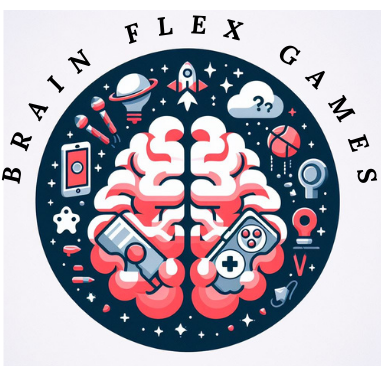
You’re going to find out about the natural aging process and how it impacts memory.
Memory loss, a concern for many, can be part of normal aging or a sign of something more serious.
I’ll break down the types of memory changes that you might encounter and also address some common myths.
I’m here to help you differentiate between normal age-related forgetfulness and medical conditions like dementia or Alzheimer’s disease.
It’s crucial to recognize that misplacing keys or forgetting a name does not automatically signal a severe memory problem.
In my opinion, having clear, factual information helps in managing expectations and planning for the future.
Now, what’s essential to consider are the lifestyle and environmental factors that can influence our cognitive health.
- chronic conditions
- nutrition
- physical fitness
- mental activity
- sleep
- social interactions
they all play a part.
Don’t worry too much about the unavoidable changes that come with aging. Instead, let’s focus on the positive steps you can take.
You can always adjust your approach down the road, but it’s vital to start somewhere.
Next up, I’ll dive into how regular exercise, a nutritious diet, mental engagement, and a vibrant social life can not only enrich your golden years but might also keep your memories sharp and clear.
Lifestyle Choices to Combat Memory Degradation

You’re going to find out about small, yet impactful, changes you can make in your daily routine to bolster your memory as you age.
Aging doesn’t have to mean inevitable cognitive decline, and a proactive approach to your lifestyle can make all the difference.
Physical activity does wonders for the brain, not just the body.
Regular exercises like walking, swimming, or any activity that gets the heart pumping can improve blood flow to the brain and enhance cognitive function.
Eating right plays a key role, too. I’m talking about a balanced diet abundant in fruits, vegetables, whole grains, and lean proteins.
Let’s not forget the potential of Omega-3 fatty acids found in fish for brain health. These nutrients are allies in keeping your neural pathways firing properly.
Engage your brain as much as you would your muscles. Mental exercises such as puzzles, strategic games, or even learning a new language can help maintain cognitive function. Think of it as a gym for your mind.
Quality sleep is the unsung hero of cognitive health. It’s during sleep that your brain consolidates memories.
Ensure that your sleep routine is as respected as your waking one for optimal memory retention.
And remember, social butterflies might have an edge when it comes to preserving memory.
Regular interactions with friends, family, or community groups keep the brain engaged and resilient against decline.
Management Strategies for Optimal Cognitive Health
Navigating chronic conditions is pivotal when it comes to protecting our brains from premature cognitive decline.
Conditions like diabetes and hypertension aren’t just a threat to overall health; they can also accelerate memory loss if left unchecked.
It’s crucial to work closely with healthcare providers to keep these conditions under control, as their management can substantially impact cognitive function and quality of life in our golden years.
I’m going to touch on why it’s important to think about alcohol and smoking habits. We know they’re harmful in general, but excessive alcohol and smoking pack a serious punch to cognitive health.
If you want to maintain sharpness as you age, consider moderating your alcohol intake and if you smoke, now’s the time to quit.
The brain’s resilience can be significantly compromised by these habits, making this step a no-brainer for anyone looking to preserve their cognitive faculties.
Don’t underestimate the value of regular health check-ups. They’re your front line of defense in catching health issues that could affect your cognitive health.
Early detection is key, as it can lead to interventions that could slow down or even prevent further decline.
These check-ups are opportunities to understand your health better and to take proactive steps – be it through medication adjustments or lifestyle changes – to safeguard your memory.
Dealing with stress may seem like a normal part of life, but chronic stress is a different ballgame – it can wreak havoc on the brain.
That’s why it’s essential to find effective stress-reduction practices, like mindfulness, meditation, or yoga.
Giving your brain a break from the constant fight-or-flight mode can help maintain cognitive functions, and believe me, your memory will thank you for it.
Lastly, let’s talk about medication management. It’s not unheard of for medication side effects to impact cognitive function.
This is why it’s important that medications are taken exactly as prescribed and are regularly reviewed by healthcare professionals.
Be vigilant and communicate with your doctor about any concerns. Remember, managing your medication is managing your health, and that includes your all-important cognitive health.
Creating a Supportive Environment for Aging Individuals
The support of the community is equally vital in the quest to prevent memory loss in old age.
I’m here to help you see how designing social structures can actively encourage and support our seniors.
By building communities that promote regular interaction and social participation, we foster an environment conducive to cognitive health.
From community centers offering educational programs on brain health, to technology that aids in memory and cognitive function, every bit makes a difference.
These programs not only provide mental stimulation but also a crucial sense of belonging, which in itself is a powerful medicine.
Family members play a non-negotiable role, too. Emotional and social support systems are essential.
They empower older adults to pursue a healthy lifestyle and stay engaged in preventive practices.
Think of it this way, we’re creating a fabric of care wherein every thread – whether it’s technology, community support, or family care – reinforces the resilience of our seniors’ cognitive health.
It may sound like a lot to ask for, but remember, the actions we take today can have a profound impact on how gracefully we – and the ones we love – age tomorrow.
By joining forces, we can carve paths that lead to brighter, memory-filled tomorrows for every aging individual.
